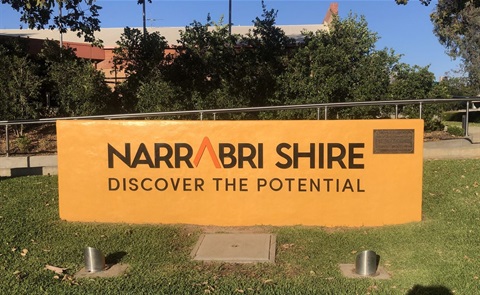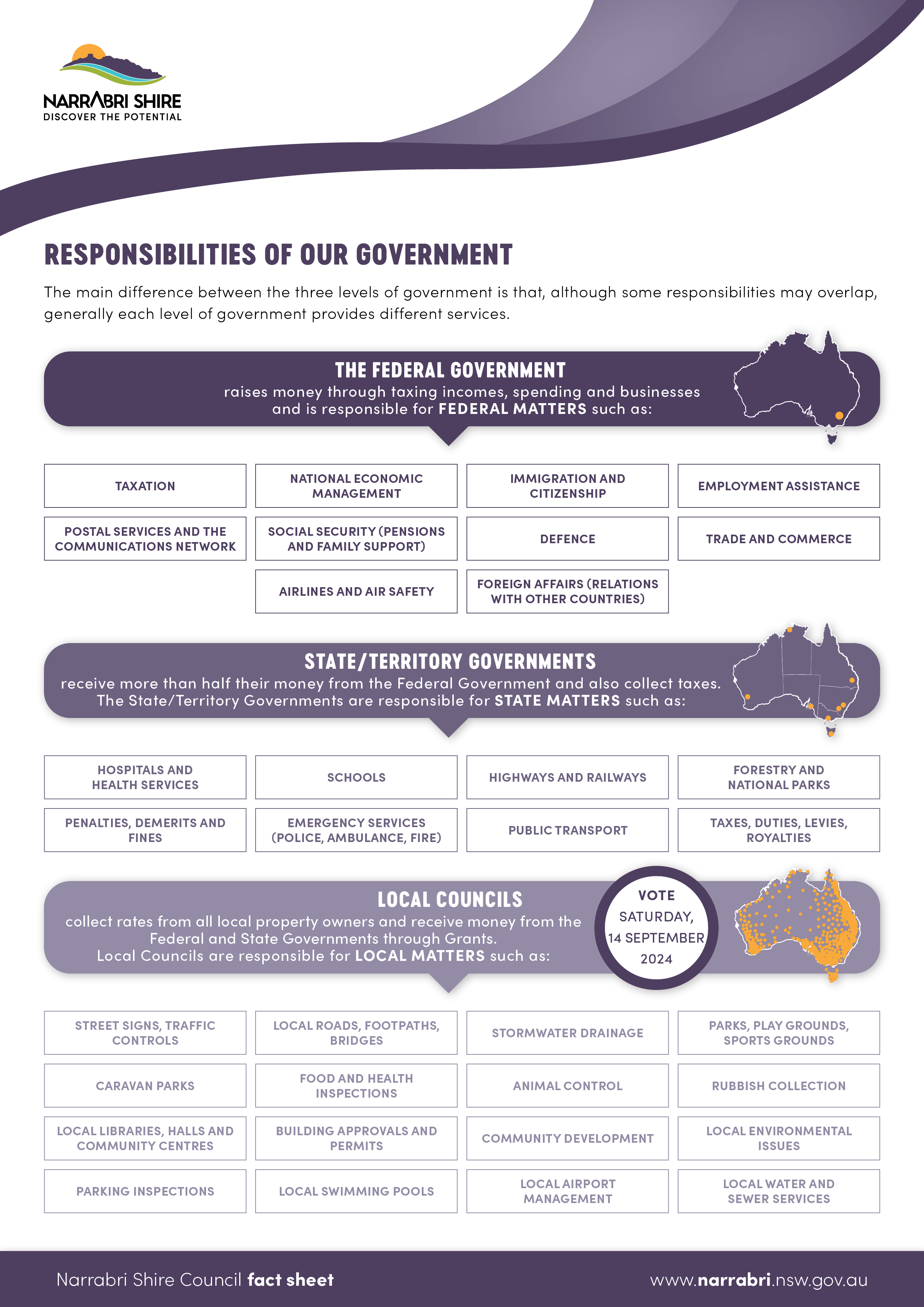How does Council work?

Councils play a pivotal role in the seamless functioning of local communities by offering an extensive array of services and taking responsibility for matters that significantly impact our everyday lives. These local governing bodies serve as the bedrock of our democratic system and play a crucial role in ensuring the well-being and prosperity of their constituents.
These services may include:
- Libraries, community centres and halls.
- Recreation facilities such as public swimming pools and sporting fields.
- Infrastructure such as roads, bridges, boat ramps, skate parks, public toilets and picnic areas.
- Environmental and public health services.
- Waste management and recycling.
- Controlling companion animals.
- Planning and development services.
- Services for specific groups in the community such as children, young people, older people, people with disabilities, indigenous people and people form culturally and linguistically diverse backgrounds.
How can you find out about your local Council?
If you are not sure which area you live in you can:
- Check the local government section in your local telephone directory.
- Look in a street directory.
- Go to the department’s website at . Enter your suburb or town in the search box. The results will include a map of the council area, some statistical information, and contact details for your council.
- Call the Office of Local Government.
OLG Website Call OLG
How do Councils operate?
Councils operate within laws set by the NSW government. Their powers and responsibilities mainly come from the Local Government Act 1993 and associated regulations.
NSW is divided into approximately 128 council areas. These areas may be divided into wards. Each ward must have about the same amount of voters and elect the same amount of councillors.
Council elections are held every four years. Each Council must have between five to fifteen councillors, one whom is the Mayor. Mayors are either elected by the other councillors or directly by the local community.
All councillors must complete training in topics such as meeting procedures, planning legislation, financial issues, codes of conduct and conflicts of interest.
The role of the councillors is to set the Council’s strategic direction and make final policy decisions. Council meetings are held at least ten times a year to discuss issues and make decisions on behalf of the local community.
Councils employ a range of administrative, outdoor, technical and professional staff. The General Manager is responsible for implementing the strategic direction and policies set by the councillors and managing the work of Council staff.
How are Councils financed?
Councils receive income from rates and annual charges, user charges and fees, interest, contributions and donations, and grants from the State and Federal Government. They also receive government funding for specific projects.
What can you do if you have a problem with your Council?
Many problems can be resolved at an early stage by speaking to the appropriate person at the Council. If you are not satisfied with the response from Council staff, you could contact your local State Member of Parliament.
All NSW Councils are independent corporate bodies so the Office of Local Government does not have the authority to direct local Councils in their day-to-day decision making.
However if you cannot resolve a complaint you have about your Council, you should contact the NSW Ombudsman or the Office of Local Government.
